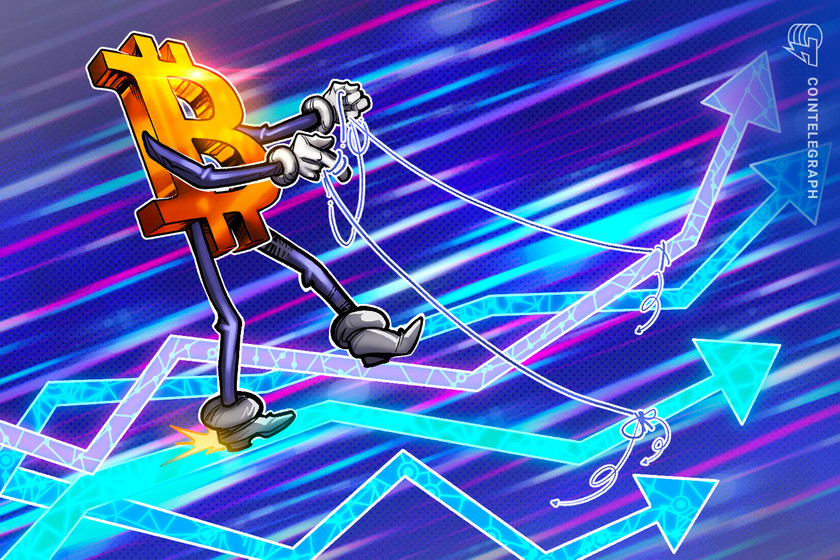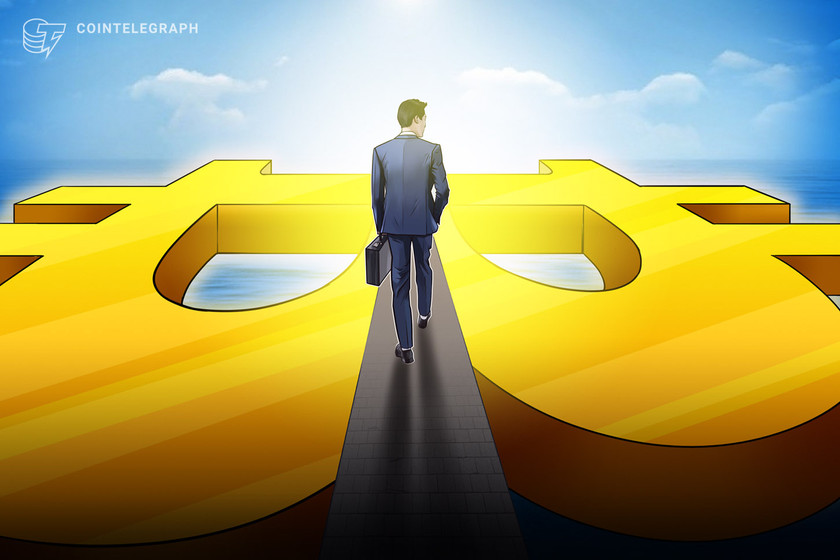IMF wants El Salvador to reconsider Bitcoin exposure: Community reaction
One community member interpreted the IMF’s move as a way to “scare other countries away” from adopting Bitcoin as a legal tender.
554 Total views
10 Total shares

Own this piece of history
Collect this article as an NFT
After a visit to El Salvador, the International Monetary Fund (IMF) suggested the country reconsider its plans to increase exposure to Bitcoin (BTC). The community responded to the IMF’s suggestion with various messages calling out the organization.
From dismissing the IMF’s suggestion as a simple case of spreading fear, uncertainty and doubt, or “FUD,” to interpreting it as a strong bullish signal for BTC, various crypto community members went to social media to express their sentiments on the IMF’s efforts to discourage El Salvador’s plans for Bitcoin.
In a tweet, one community member argued that IMF’s move is a way to “scare other countries away” from the example that El Salvador has set. The Twitter user also urged others to adopt BTC and help close central banks. They tweeted:
what IMF meant was that #ElSalvador’s #Bitcoin benefits materialized and the country paid off its debt, so now the IMF wants to scare other countries away from that excellent example
Help a central bank close shop. Adopt and start using #bitcoin in your daily life https://t.co/j7yVY7mNWd
— Bitcoin Spot GR (@bitcoinspotGR) February 11, 2023
Influenced by El Salvador’s resilience despite an unforgiving bear market, many other countries are becoming more Bitcoin-friendly. For example, on Nov. 29, 2022, the Chamber of Deputies in Brazil approved a law that legalizes crypto as a payment method. The Brazilian president signed the bill on Dec. 22, and it’s expected to be enacted before the third quarter of 2023. However, unlike El Salvador, the law doesn’t make BTC and other cryptocurrencies legal tender within the country but will be recognized as a means of payment.
Meanwhile, another community member also commented on the issue, calling out some inconsistencies from the IMF. For example, according to Bitcoin Xoe, the IMF acknowledged that El Salvador’s GDP is projected to grow above the historical average. Despite that, the organization recommended giving up Bitcoin over economic risks.
Yet another Twitter user described the IMF’s efforts as “FUD.“ The community member believes that Bitcoin will march on regardless of the IMF’s suggestion. On the other hand, a community member argued that this is a strong Bitcoin bull signal. According to the community member, the IMF’s hold on the developing world is slipping away.
Related: Does the IMF have a vendetta against cryptocurrencies?
El Salvador has announced many plans for Bitcoin in the country. On Nov. 17, Salvadoran President Nayib Bukele announced his plans to purchase one BTC daily. On Jan. 11, the country established a legal framework for a Bitcoin-backed bond, dubbed the “Volcano bond,” which will be used to pay down sovereign debt and fund the construction of “Bitcoin City.“
Bitcoin has had many other developments as of late. On Feb. 14, Bitcoin’s average block size hit a new all-time high. The surge follows the creation of Bitcoin’s nonfungible token protocol called Ordinals in January.
As the Bitcoin ecosystem continues to grow in terms of capability and user base, it continues to strengthen its position amid an ever-inflating fiat economy.









